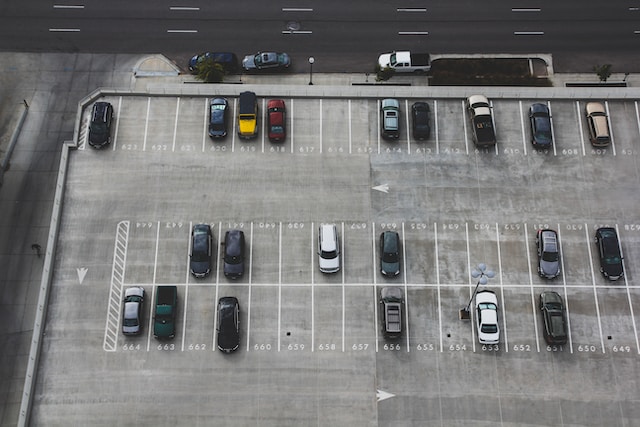A parking lot is more than just a place to park your car; it says much about your business. Choosing a suitable roading material is essential when paving your commercial property.
Asphalt and concrete remain the most common options, but aggregate and composite pavement are also available. The quality of the material you select will determine how long your parking lot lasts and how much it costs to maintain.
Durability
The quality of materials and installation techniques in parking lot paving La Porte, IN, affect cost, maintenance needs, and the pavement’s lifespan. Choosing high-quality materials can help you maximize the return on your investment.
Concrete is a durable option that resists chemical exposure and offers a variety of design options for visual appeal. However, it can be costly and requires extensive installation time.
Asphalt is a less expensive alternative to concrete and offers a smooth, black surface that’s visually appealing. It’s also able to absorb the heat from the sun, melting snow and ice more quickly than concrete. However, it’s susceptible to oil stains and can degrade over time.
Regularly repairing minor damages is good for the longevity of your parking lot and helps you avoid liability issues. The longer you let your parking lot go without repairs, the more extensive and expensive the damage will become. So, schedule regular maintenance with a reputable local paving contractor.
Safety
A poorly paved parking lot looks terrible and can cause injuries to your customers or employees. In addition to preventing these accidents, a smooth surface can help avoid costly damage to vehicles and equipment.
Asphalt is a popular paving choice for its durability and cost-effectiveness. However, some find its uniform black surface less visually appealing than other options like concrete or pavers. It is also susceptible to oil stains, which can degrade the material over time.
Proper drainage is a must to protect the integrity of your parking lot. Standing water damages the bonding of the pavement and causes cracks. It can also be dangerous for pedestrians who may slip and fall.
Other safety precautions include the use of speed bumps and humps to limit the speeds of automobiles in your parking lot. They can also direct traffic and prevent collisions between vehicles and building occupants. Guard rails and bollard covers are also great ways to minimize the risk of property damage in your parking lot while still allowing customers access to your business.
ADA Compliance
The type of pavement you choose will significantly impact your parking lot’s longevity and day-to-day maintenance costs. Although asphalt has a higher up-front cost, it can last longer than gravel lots and requires less maintenance, saving you money in the long run.
ADA compliance should be on the mind of all property owners, whether they have an existing commercial parking lot or are planning on building a new one. The Americans with Disabilities Act sets regulations for accessible parking spots and access routes, and you must follow these guidelines to protect your business from lawsuits.
There are numerous ways to become ADA-compliant, from painting the international accessibility symbol to adding a ramp or regrading your slope. However, it is best to consult a professional contractor for the most accurate information regarding your state’s accessibility requirements. If you need help figuring out where to start, consider consulting your local code enforcement office.
Maintenance
A well-maintained parking lot is a crucial component of a company’s reputation. It shows that a business is professional, successful, and invested in the property.
If a parking lot is maintained, it can become safe for customers. Cracks, chips, puddles, and other damage can cause customers to fall and injure themselves on the premises. This can lead to a lawsuit and severe liability issues for the business owner or property manager.
Consistent inspections & maintenance are the best ways to reduce repair costs. Keeping up with routine asphalt repairs helps to avoid extensive damage and extends the pavement’s lifespan. This includes things like crack filling, striping, and seal coating. This prevents further wear & tear and protects the surface from harsh weather conditions. This can help to prevent potholes & other damage that will require costly repaving. It also helps prevent damage from vehicles driven over the pavement over time. This is especially important for parking lots used by commercial trucks and vehicles.




